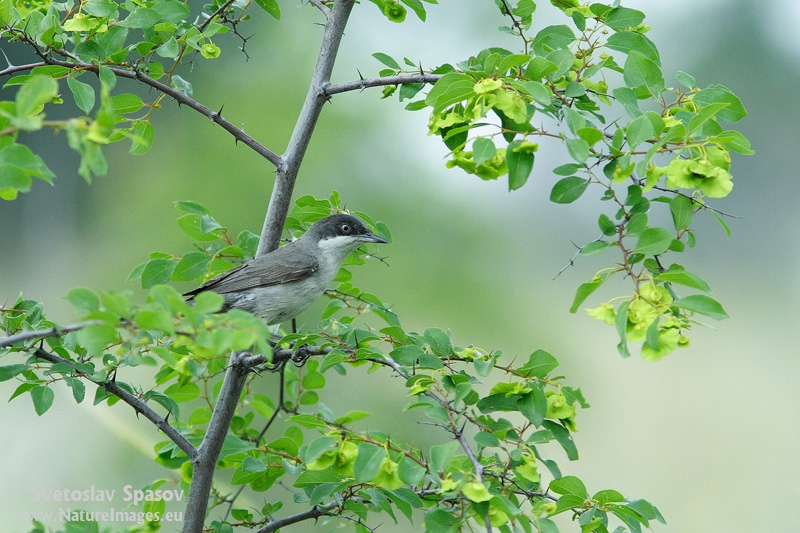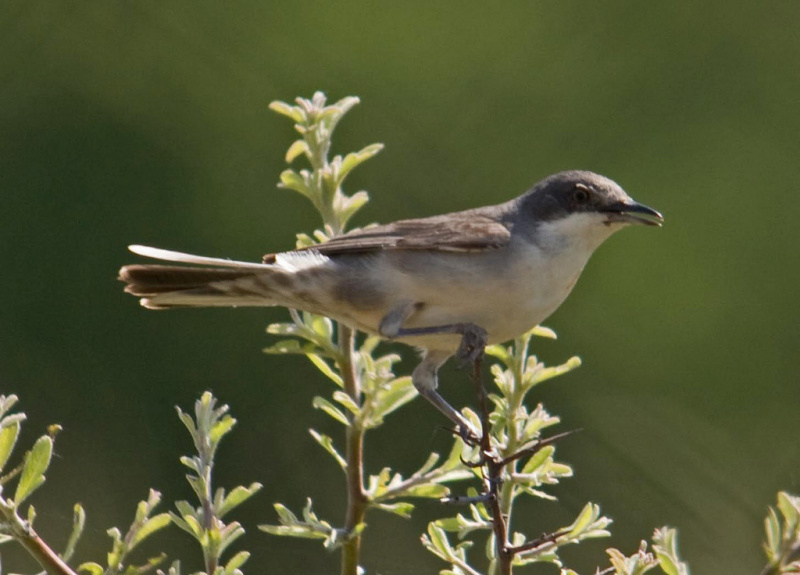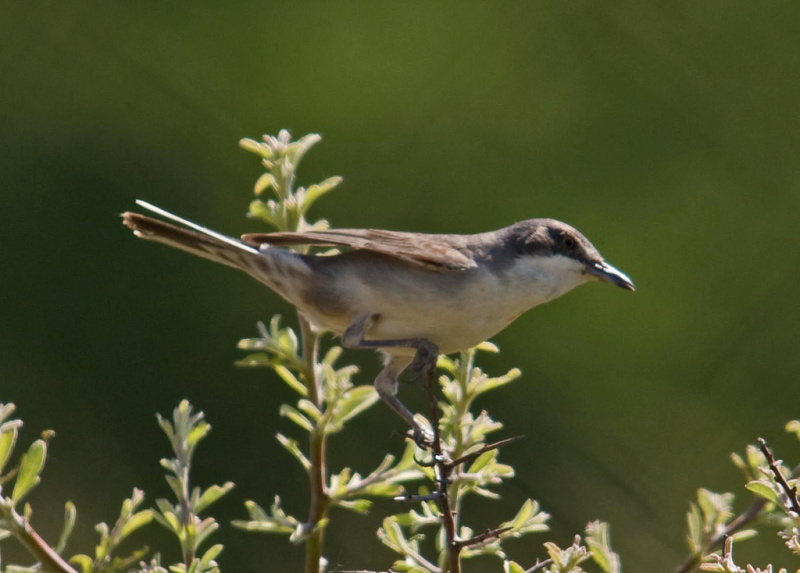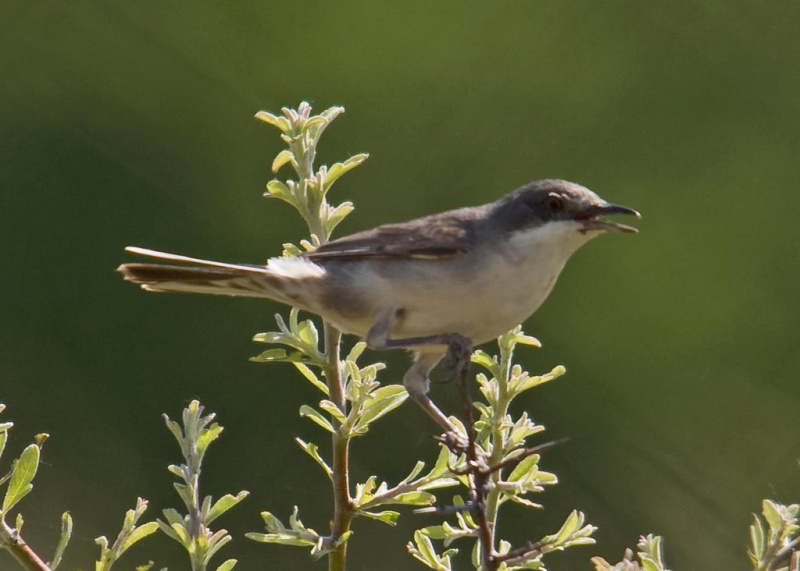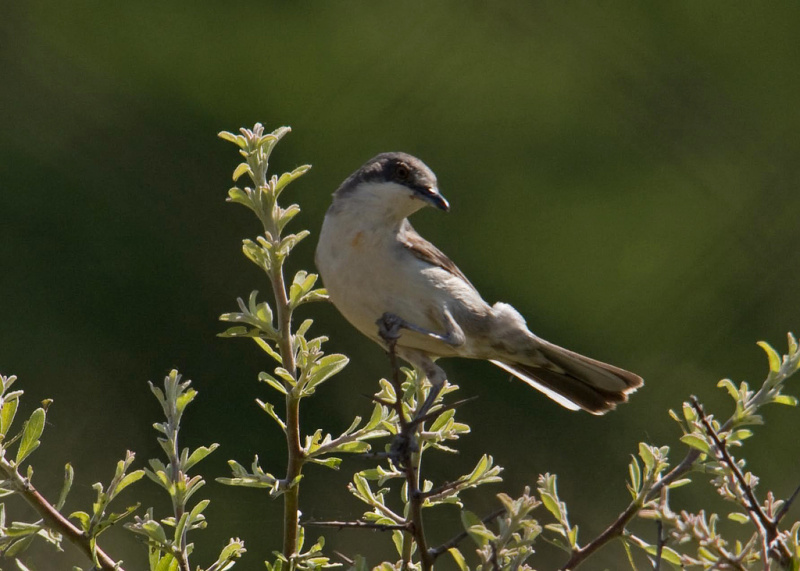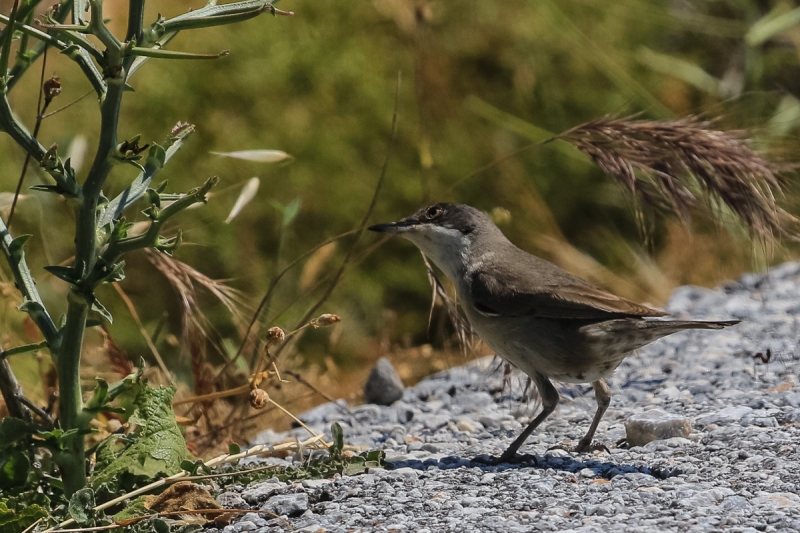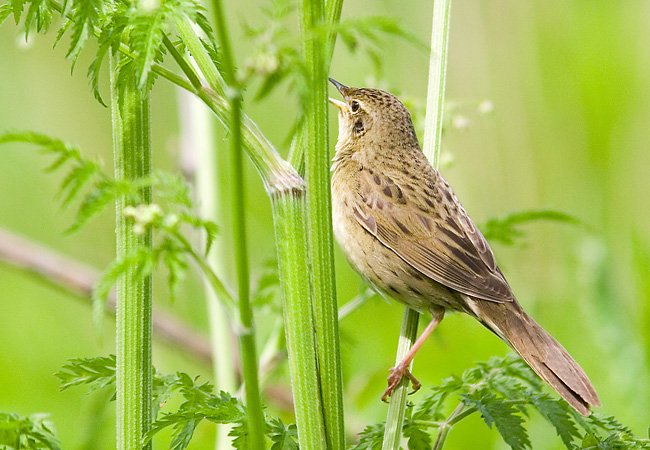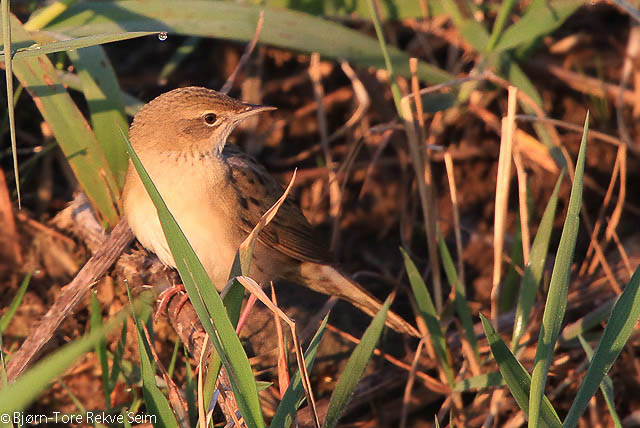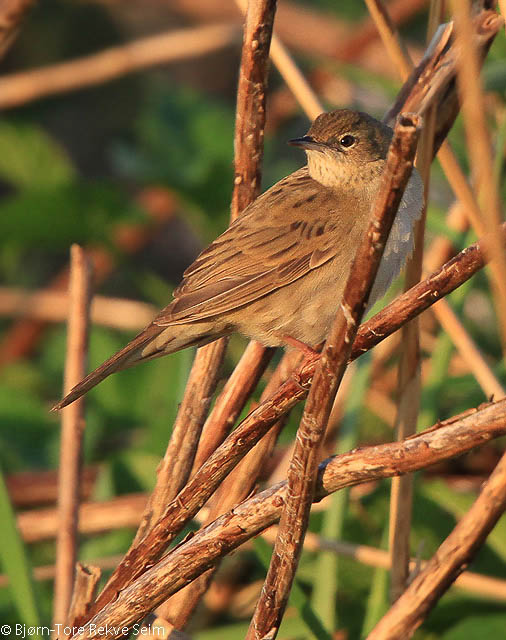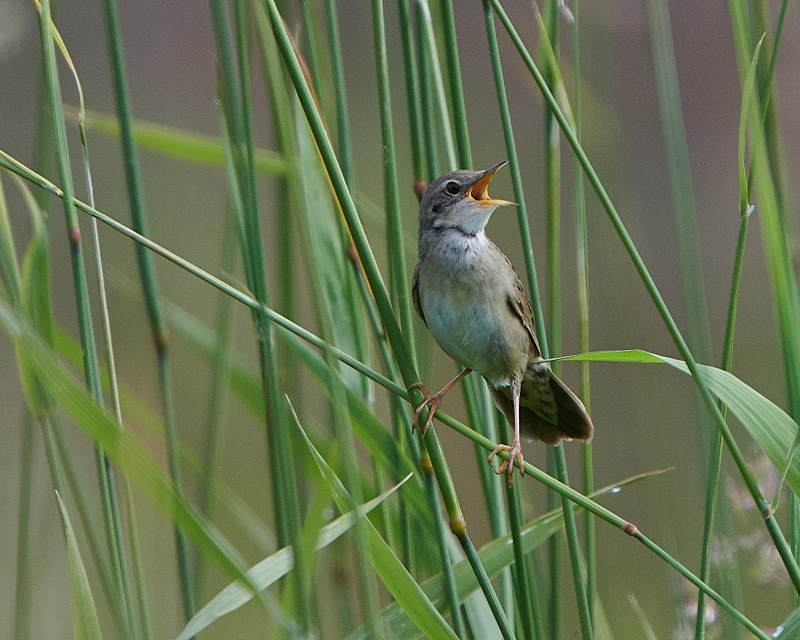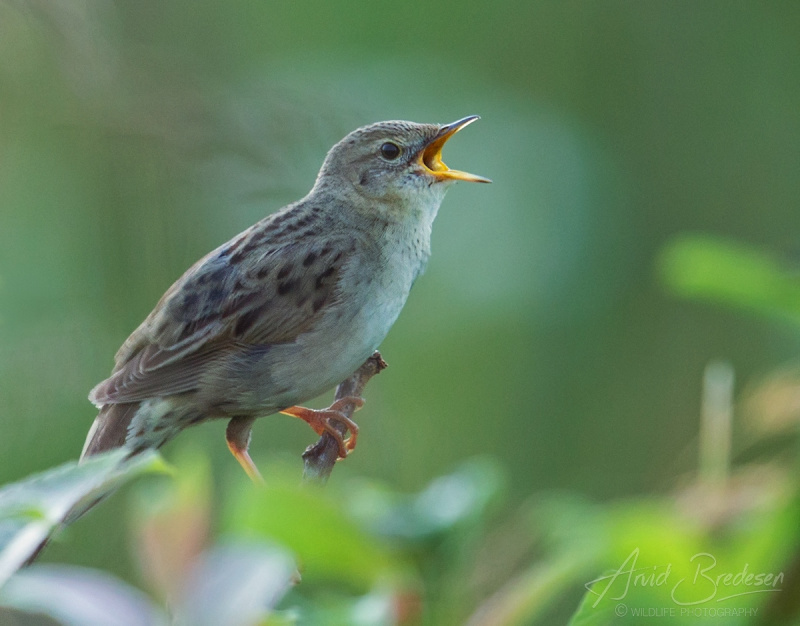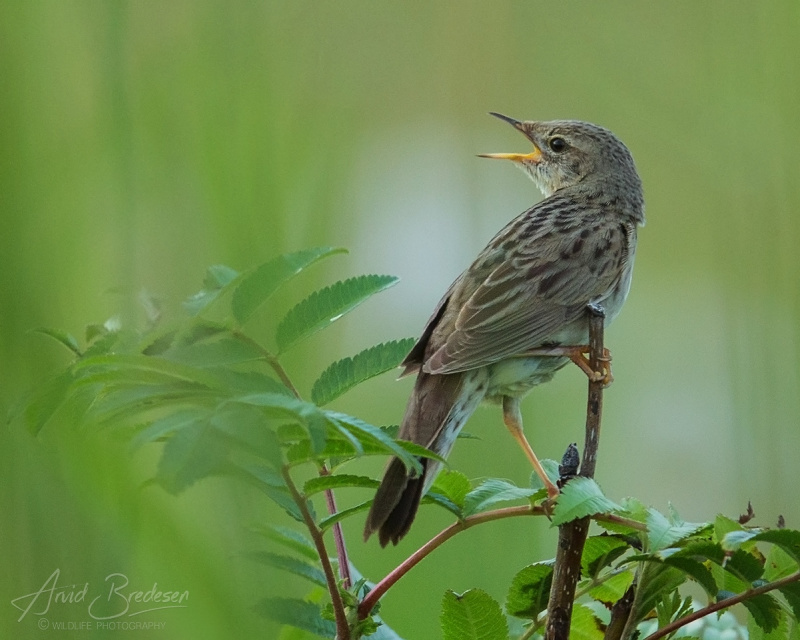Eastern Orphean Warbler (Curruca crassirostris)
Grasshopper Warbler (Locustella naevia)
Rather large and heavily built Sylvia with dark hood and pale iris (in adults). Lacks red orbital ring of Sardinian Warbler. Very similar to Western Orphean Warbler (S. hortensis), but usually distinguished from that geographically by different breeding and wintering range, and also by appearance in typical birds (in addition to song). The following field marks differs from S. hortensis; dark centres to under tail coverts and whiter underparts with very little buff tones (slightly buff flanks in some). Other more variable traits are; dark hood more distinctly bordered in neck, colder grey upperparts and longer, more curved bill. Vagrant immature birds outside of normal distribution may be impossible to tell from S. hortensis. Apart from size, it differs from Lesser Whitethroat by; stronger bill, lack of incomplete white eye-ring, darker upper tail and above mentioned under tail coverts.
Sound:Contact call a short "check", sometimes in series. When agitated a nasal, rattling "trrrr-trrrr-trrrr". Both calls very similar to S. hortensis. Song distinct, but with same quality of fluting sounds as in S. hortensis, recalling that of Blue Rock Thrush in timbre. Phrases often long and much more varied and impressive, with frequent mimicry. May be mistaken for Nightingale, but incorporates more dry trills, is slower, harder and lacks the diagnostic series of plaintive notes (may mimic it!).
Song:
Distribution:
Xeno-canto: map
Ecology:Birdlife ecology
Links:
Observation.org Latest observations
Image search Flickr NB! May give other species
CCCC-sound:Mehmetunlu, Licence,Link.
CC-photo:Paul Cools, Licence,Link.
Anonymously brown and dark brown warbler. Slender bill, short rounded wings and broad waist and tail. Base colour varies from olive-brown to yellowish buff. Streaking also varies from diffuse to marked, and is most prominent on sides of throat and upper chest. juveniles are more streaked than adults. Rufous/olive fringes to tertials are broader on outer side (as opposed to Pallas' Grasshopper Warbler). Secretive bird. Generally discovered by song.
Sound:Song insect-like and high-pitched. A monotonous stream of even clicks similar to a running fishing line. Maintained for seemingly endless periods, and often hard to locate. Song most similar to Savi's Warbler but is slower (each click more separated), and higher pitched with a metallic, ringing quality. Short sequences of song also functions as contact call. Also a Robin-like "tick".
Song:
Distribution:
Xeno-canto: map
Ecology:Birdlife ecology
Links:
Observation.org Latest observations
Image search Flickr NB! May give other species
CC
 English
English Albanian
Albanian
 Armenian
Armenian
 Bulgarian
Bulgarian
 Catalan
Catalan
 Croatian
Croatian
 Czech
Czech
 Danish
Danish
 Dutch
Dutch
 Finnish
Finnish
 French
French
 Georgian
Georgian
 German
German
 Greek
Greek
 Hungarian
Hungarian
 Italian
Italian
 Latvian
Latvian
 Lithuanian
Lithuanian
 Macedonian
Macedonian
 Norwegian
Norwegian
 Polish
Polish
 Portuguese
Portuguese
 Romanian
Romanian
 Russian
Russian
 Sami : Lule sami
Sami : Lule sami
 Sami : North sami
Sami : North sami
 Sami : South sami
Sami : South sami
 Scientific names
Scientific names
 Serbian
Serbian
 Spanish
Spanish
 Swedish
Swedish
 Ukrainian
Ukrainian

